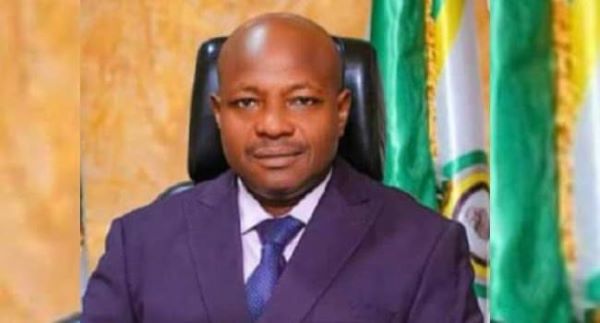The Director-General of the Department of State Services, Mr. Oluwatosin Ajayi, has advocated for a recruitment policy that prioritizes academic excellence, suggesting that first-class graduates in the country should be enlisted into the DSS to strengthen national security.
Ajayi made this call while delivering the 2025 Distinguished Personality Lecture at the Centre for Peace and Strategic Studies, University of Ilorin, Kwara State.
In his lecture, titled “The Roles of the DSS in Security, Peacekeeping, and National Integration,” Ajayi emphasised the need for a paradigm shift in recruitment and staffing within security agencies to ensure only the best minds are enlisted.
“If I had my way, the best students from universities should be mandated to serve the country in intelligence roles,” he said.

Drawing a comparison with Israel’s university admission system, he stressed that intelligence work requires top-tier minds.
“It takes intellect to track criminality. You cannot expect a dullard to outthink a criminal gang made up of highly intelligent individuals,” he added.
The DG, represented by the DSS Deputy Director, Mr. Patrick Ikenweiwe, also stressed the need for a shift in public perception, noting that many Nigerians view security agencies as adversaries rather than allies.
He warned that such attitudes negatively impact intelligence gathering, peacebuilding, and national integration.
Despite existing challenges, he noted that the DSS continues to collaborate with sister agencies and engage stakeholders to navigate security threats effectively.
The lecture further highlighted the critical role of intelligence agencies in safeguarding national security, emphasising that public perception of security organisations as adversaries rather than allies hampers intelligence gathering and peacebuilding.
Addressing Nigeria’s security landscape, Ikenweiwe noted that traditional threats such as sabotage, subversion, and espionage have evolved into more complex challenges, including terrorism, insurgency, separatist agitations, militancy, cybercrime, and economic sabotage.
Also Read:
- HURIWA accuses, faults Tinubu’s ‘nepotism’ in key appointments
- Enugu Rep, Oke dismisses recall petition as baseless
- Kunle Afolayan’s son replies critics: ‘I’m unapologetic about who I am’
- Graduate’s murder: Police demand prior notice before camping, hiking in Abuja
- Just In: I’ve been arrested by Immigration but don’t know my offence – Bobrisky laments
He reaffirmed the DSS’s commitment to tackling these threats through strategic collaborations with sister agencies and continuous stakeholder engagement.
Speaking on an overview of the mandate of the DSS, he said the service’s internal security responsibilities are accommodated in the NSA Act CAP N74 LFN, 2024 and SSS Instrument No. 1 of 1999.
“The former summarily mandates the Service to prevent and detect any crime against the internal security of Nigeria as well as protect non-military classified national security matters, while the latter, promulgated by Abdulsalami Abubakar, mandates the service to, among others, prevent, detect and investigate the threat of espionage, subversion, sabotage, terrorism, separatist agitation, law and order and economic crimes of national security dimension.
“The instrument also demands that the DSS gives timely advice to the government on all matters of national security interest. Most importantly, the Service is empowered by the aforementioned legal frameworks to execute other functions as may from time to time be assigned by Mr. President, the Commander-in-Chief of the Armed Forces.
“The centre also offers short-time capacity-building training in those areas. Quite a number of officers from the Nigeria Armed Forces, other security agencies as well as officers of other nations have benefitted from the programmes, graduated and are doing well in their callings,” he said.
In his address, the Director of the Centre for Peace and Strategic Studies, Professor Abdulganiyu Jawondo, highlighted the centre’s role in manpower development for crisis and conflict resolution.
“Since its establishment in 2008, the centre has trained officers from the Nigerian Armed Forces, security agencies, and other nations, equipping them with skills to handle contemporary security challenges,” he stated.
The lecture reinforced the need for strategic intelligence gathering, stronger institutional frameworks, and public collaboration in tackling Nigeria’s security challenges.


